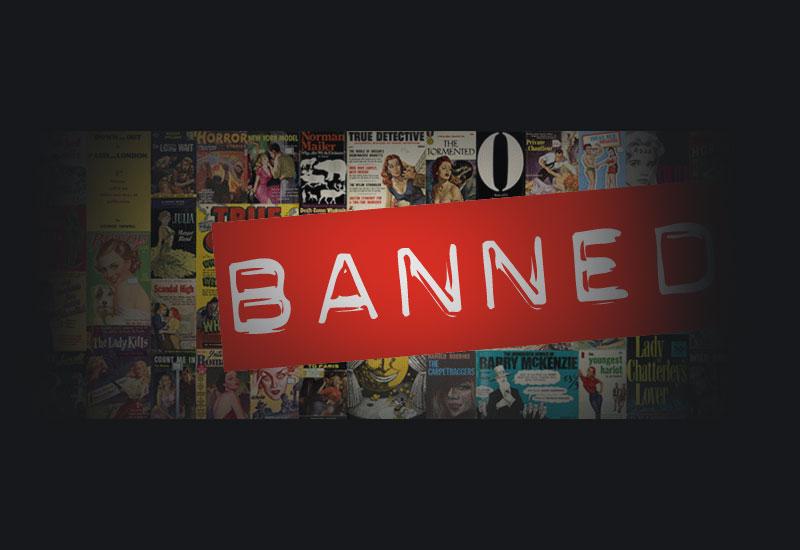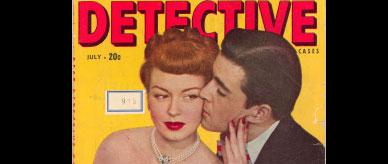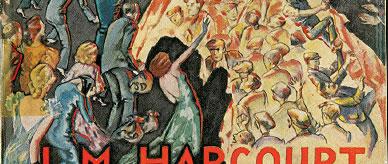American author Kathleen Winsor’s notorious bestselling bodice-ripper Forever Amber tells the story of Amber St Clare, a peasant-class, illiterate woman who uses her wits and beauty to climb to the heights of King’s mistress in 17th-century Restoration England. Three million copies of Forever Amber sold after its publication in November 1944 and the novel became a blockbuster in 16 countries.
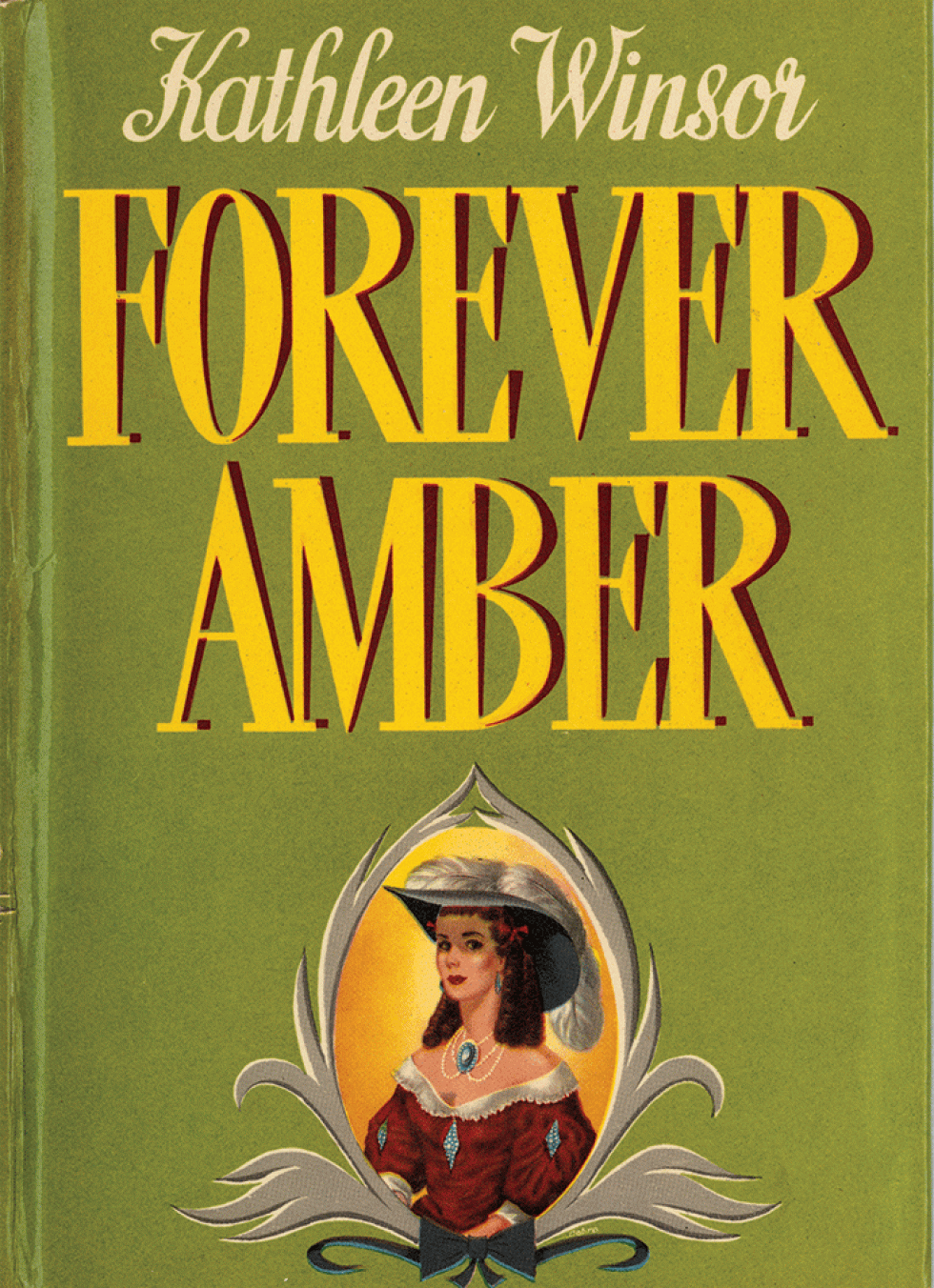
Cover of Forever Amber, 1945 English edition published by The Modern Publishing Company.
NAA: C3059, Forever Amber
Import embargoes on American fiction prevented the US edition of Forever Amber from being brought into Australia, beyond individual copies sent by post or brought in travellers' luggage. However, reviews and publicity for Forever Amber that had reached Australia fuelled widespread interest in the novel.
Concern that a Hollywood film adaptation of Forever Amber, which was announced before the book was released, and publication of an English edition with minimal excisions to the first edition would stimulate further demand, prompted Customs to forward a copy to the Literature Censorship Board in May 1945 for urgent review.
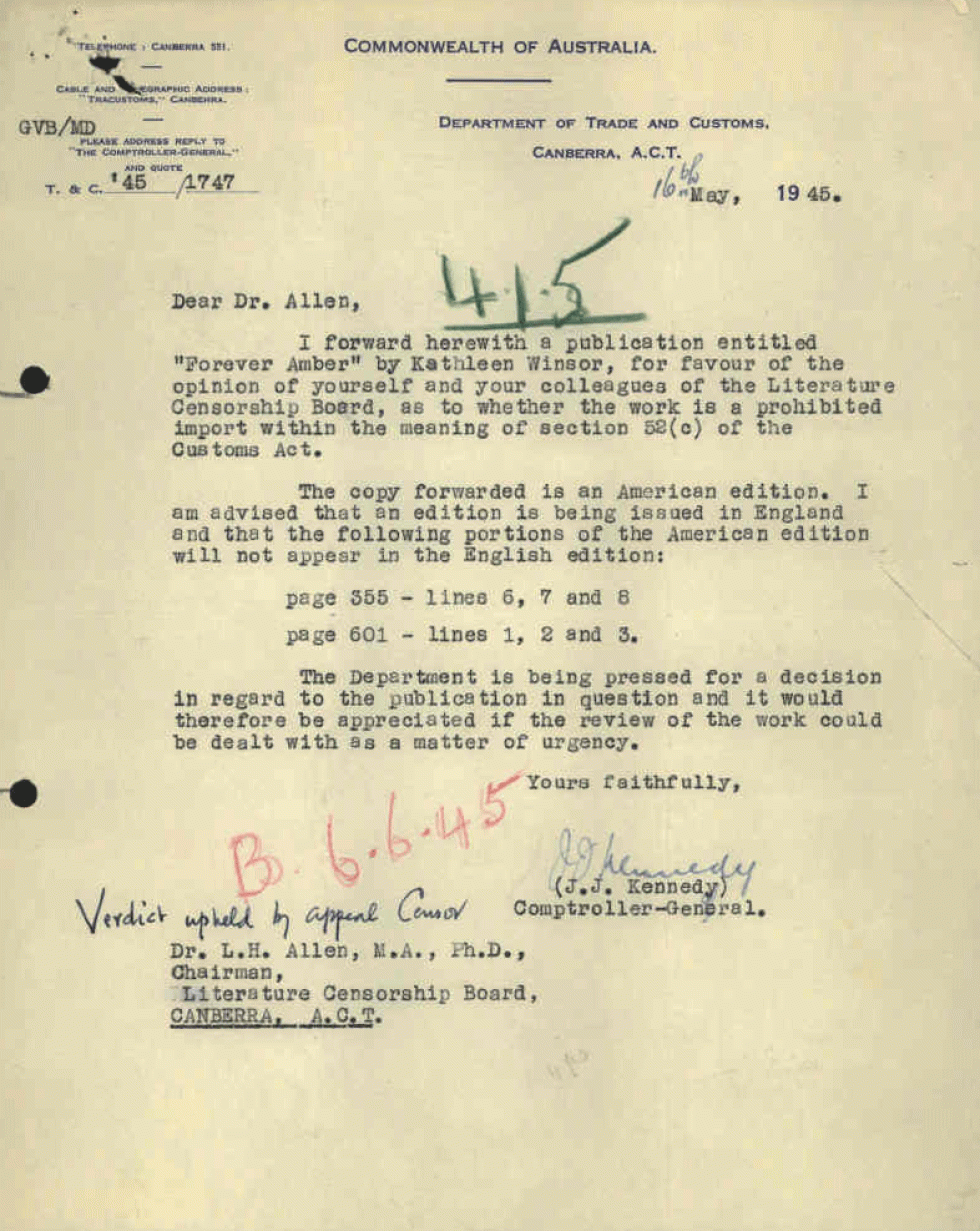
Letter from Comptroller-General JJ Kennedy to Chairman of the Literature Censorship Board, LH Allen, noting that Customs was ‘being pressed for a decision’ about Forever Amber.
NAA: A3023, Folder 1945/1947
Owing to the length of the novel at more than 900 pages, only the Board's chairman, LH Allen, wrote a comprehensive report. Allen dismissed Forever Amber's enormous sales, stating that 'popularity is no sure guarantee of worth'. 'The source of [the novel's] notoriety is more properly to be found in a crude and obvious appeal to the sexual instinct', he added.
Allen's two-page summary, completed on 5 June 1945, criticised the novel for lacking literary merit and over-emphasising sex. 'There is no eminence in the writing. Powerful, pointed, or delicate phrasing is missing', he wrote. Citing pages that highlighted the book's offending passages, including those that dealt with sex, impotence and abortion, Allen concluded the book was too obscene for Australian readers. The other two board members, Kenneth Binns and JFM Haydon, concurred with Allen’s assessment.
Customs Minister Senator Richard Keane agreed with the Board, publicly stating, 'The Almighty did not give the people eyes to read that kind of rubbish'. The ban also applied to the expurgated English edition.
![After reading 248 pages in addition to those marked by Allen, Kenneth Binns concluded ‘that in many places [Forever Amber] is so bawdy as to be classified as indecent’.](/sites/default/files/styles/carousel_single_image_display/public/2024-03/blog-forever-ember-232633-19.jpg?itok=UF8IdjIU)
After reading 248 pages in addition to those marked by Allen, Kenneth Binns concluded ‘that in many places [Forever Amber] is so bawdy as to be classified as indecent’.
NAA: A3023, Folder 1945/1947
An unsuccessful appeal to release Forever Amber by the book's British publisher in 1953 maintained that the novel was 'a descriptive masterpiece of authentic historical detail' with 'no modern foul language [and] no pornography'. Sir Robert Garran, who was appointed as the first Appeal Censor in 1937, upheld the Board’s original decision:
The Board's view and my view of this book was that it had no particular literary merit, but was mainly a collection of bawdiness, amounting to sex obsession, and with little appeal apart from that … I see no reason to vary the previous recommendation.
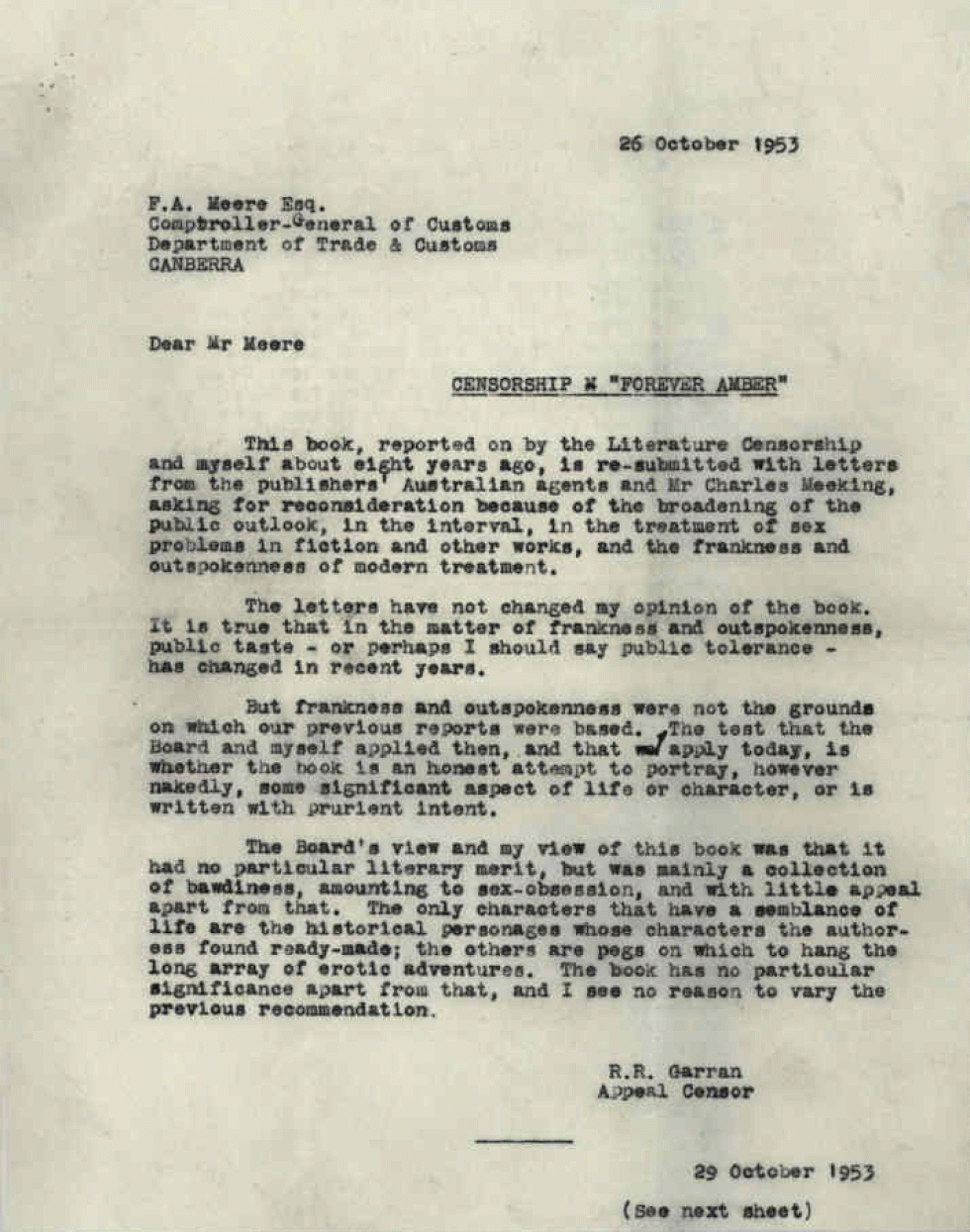
Garran’s 1953 report on Forever Amber as Appeal Censor.
NAA: C4419, Whole Series
Kathleen Winsor was aged 24 when Forever Amber, her first novel, was published. When she learned the Australian Government banned the book she retorted, 'I don't care whether Senator Keane likes my book or not'. 'Apparently he does not like English history', she added. 'I don't make English history. The English did it first. I only wrote about it.'
Forever Amber was removed from the Commonwealth list of prohibited imports in 1958 following the first review of banned books since Federation.
This article was originally published in 2013 as part of National Archives's Banned display and blog, delving into the secret history of Australian literary censorship.

